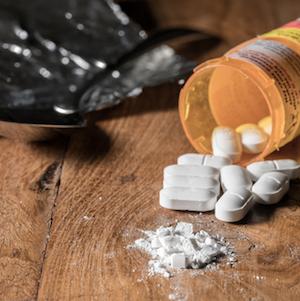There is nothing more effective for treating acute pain than opioids, said University of Washington pharmacology professor Charles Chavkin at a recent discussion on the "next generation" of pain therapeutics hosted by Life Science Washington in Seattle.
For some people, however, opioids aren't just painkillers. Instead, they serve as a lure into an addictive, self-destructive lifestyle. The sense of euphoria that opioids can cause proves irresistible to some addicts. For this reason, pharmaceutical companies are seeking to discover and develop non-opioid, non-addictive drugs to treat pain.
Alternatives to Opioids
Jeffrey Herz reported that his company, Algomedix, is studying a drug that blocks a protein ion channel called TRPA1. The opening of this channel in cell membranes is necessary to deliver "pain signals," and it is this channel that is associated with the pain caused by one of the active chemicals (allyl isothiocyanate) in wasabi.
These kinds of drugs, called TRPA1 antagonists, prevent the protein channel from opening. In animal models, this has been shown to reduce pain. Furthermore, because the drug targets the peripheral nervous system rather than the central nervous system, it should be non-addictive.
Shawn Iadonato from the company Kineta reported that his team is researching the analgesic effects of conotoxins, small proteins isolated from cone snails.
The Path Away from Opioid Addiction
The production of non-opioid, non-addictive painkillers is just one part of a multi-faceted approach that is necessary to combat opioid addiction in America. In the May 16 edition of the Wall Street Journal, Dr. Josh Bloom and I penned an op-ed laying out a strategy. In brief, we advocate:
- Restrictions on the size of the initial supplies of opioids.
- Physician accountability combined with the electronic filing of opioid prescriptions.
- Being aware of unintended consequences, such as the surge in heroin use after the introduction of "abuse-proof" OxyContin.
- Being aware that drug overdoses are often due to patients taking a combination of drugs, such as opioids with alcohol or benzodiazepines.
- Avoiding another "war on drugs."
- Developing non-opioid, non-addictive painkillers.
As with any complex problem, there are no easy solutions. But hopefully these policies offer a step in the right direction.




